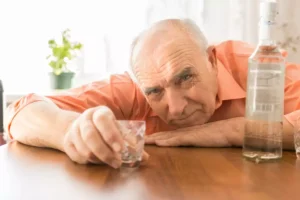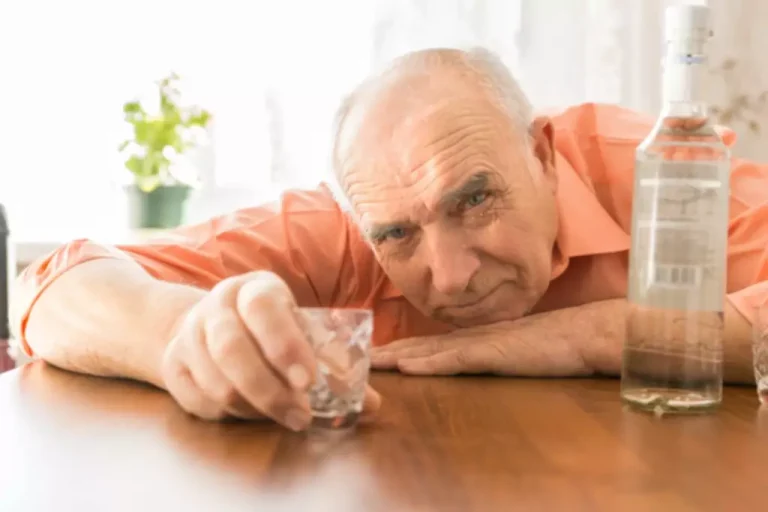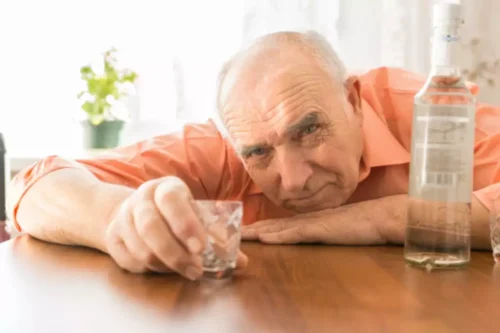
Alcohol may help you fall asleep (pass out) faster, but when you’re drunk, you’re not getting high-quality sleep. According to the National Sleep Foundation, alcohol messes with your sleep hormones and interrupts your circadian rhythm, and it prevents you from getting REM sleep, which is the deep sleep we need to feel well-rested. Also, drinking makes you dehydrated, which can also disrupt you in the middle of the night, says Koob. All of these things can make it so you have a poor night of sleep, and wake up feeling exhausted. It’s very normal to feel irritable or just generally “meh” when you haven’t slept—alcohol or no alcohol.

Got Anxiety?
- Because of this shared connection, treatment for both should include a diet to improve gut function and reduce endotoxin load that contributes to neuroinflammation.
- Hulse and Tait (2002) evaluated the efficacy of a brief motivational intervention among psychiatric patients who reported drinking at hazardous levels prior to hospitalization.
- This has frequently resulted in depressive symptoms developing or growing in severity.
- It includes mindfulness as a strategy to manage discomfort as it occurs.
- Alcohol use disorder and depression are two conditions that often occur together.
Unhealthy alcohol use is a spectrum of alcohol use ranging from “risky use” to alcohol use disorder (AUD). Alcohol use disorder is a diagnosis that a medical professional makes when someone’s alcohol use meets a specific, defined criteria. Any amount of alcohol use that causes physical, emotional, and/or interpersonal consequences or distress can be defined as risky use. I call this phenomenon drinking depression; others call it hangxiety—there’s actually an entire subreddit dedicated to it. As it turns out, it’s a real phenomenon (clinically it’s called substance-induced mood disorder) that happens as a result of the physiological and psychological impact of drinking too much.
Cognitive Behavior Therapy (CBT)
Drinking to cope with depression, no matter if you have an alcohol use disorder, is concerning. No matter your drink of choice, alcohol can easily be abused and often is, especially when it’s used to self-medicate. However, the flip side is that people who frequently use alcohol are more likely to also be depressed.
- Physical symptoms can include changes in appetite or weight (usually decreased, but sometimes increased), lack of energy, low sex drive and disturbed sleep.
- Anytime you use a substance in a way that it wasn’t designed, you are abusing it.
- But clinical depression isn’t just a matter of feeling the occasional ups and downs or periodic sadness caused by issues of daily life.
- In fact, research shows that anxiety and mood disorders commonly co-occur with alcohol use disorder, and depression is the most common among them.
How Do Depressive Disorders and Alcoholism Co-occur?

Depression and alcohol use disorder, often concurrent conditions, share many of the same alarming signs and symptoms. If you feel unable to keep yourself safe or think you might harm yourself it’s a mental health emergency. Call 999, contact your local mental health crisis team or go straight to A&E if you’re able to safely. Physical symptoms can include changes in appetite or weight (usually decreased, but sometimes increased), lack of energy, low sex drive and disturbed sleep. Take the free Drinking Check to understand more about how much alcohol you’re drinking and to receive personalised results and guidance on how to cut back if you need to. One study of people with both AUD and depression undergoing treatment for both conditions found that the majority of symptom improvement for both conditions happened during the first three weeks of treatment.
Diagnostic Criteria for Alcohol Use Disorder
- What’s more, one can make the other worse in a cycle that’s pervasive and problematic if not addressed and treated.
- If you feel depressed even when you don’t drink, or you drink because you feel depressed, it’s best to reach out to a mental health professional.
- Crystal Raypole has previously worked as a writer and editor for GoodTherapy.
- Drinking to cope with depression, no matter if you have an alcohol use disorder, is concerning.
This may occur following a planned or unplanned decrease in alcohol intake. Low serotonin levels are linked to feelings of depression and low energy. They can also lead to symptoms of anxiety, decreased self-esteem, difficulty sleeping, aggression, and more. The more you drink, the lower your overall serotonin levels become, making underlying feelings of depression worse.
If you are experiencing an active mental health crisis, call 911. Dr. Solomon also suggests doing things that distract you and take your mind off feeling bad for yourself—no, that doesn’t mean lying on the couch watching a Grey’s Anatomy marathon. Connect with other =https://ecosoberhouse.com/ people, or immerse yourself in an activity you enjoy to help you focus on something else than your bum mood. If you continue to drink a second, third, or fourth drink, alcohol eventually will have the opposite effect. “How fast it happens depends on the dose, the person, and what you have in your stomach,” says Koob.

These therapies help individuals learn healthier ways to cope with anxiety without relying on booze or other harmful substances. Alcohol intoxication is a risk factor in some cases of catastrophic injury, in alcohol rehab particular for unsupervised recreational activity. Alcohol intoxication is the negative health effects due to the recent drinking of ethanol (alcohol). Some effects of alcohol intoxication, such as euphoria and lowered social inhibition, are central to alcohol’s desirability. Binge drinking and heavy alcohol use can increase an individual’s risk of alcohol use disorder.
Alcohol messes with the chemicals in your brain, leaving you feeling depressed and anxious

This can lead to addiction and feelings of depression in the absence of the rewarding substance. Alcohol consumption can lead to feelings of depression due to chemical reactions. In the short term, drinking alcohol can make you feel good, sociable, and even euphoric. There’s also a strong link between serious alcohol use and depression. If you have a mental disorder, like depression, schizophrenia, anxiety, or bipolar disorder, it’s common to have trouble with substances including alcohol. If you don’t have alcohol dependence, you can stop drinking alcohol.
If you or a loved one is struggling with depression and booze use, you don’t have to face it alone. Contact Archway Behavioral Health today to learn more about our comprehensive mental health treatment services and start your journey toward recovery. Aside from medication, most people struggling alcohol and depression with both alcohol and depression benefit from some type of therapy or behavioral health support. This can mean joining a support group, such as Alcoholics Anonymous or SMART Recovery. It can also mean finding a personal therapist, or a recovery coach.

